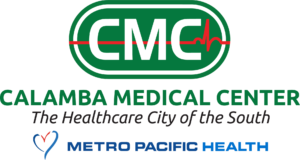A Fecalysis test examines feces; the feces is known commonly as “poop” and “stool.” The test is also called “stool analysis” and “stool exam.”
Fecalysis is a crucial part of the executive checkup, which is vital because it gives the patient insight into their overall health.
You will be recommended for a Fecalysis, especially if you begin to exhibit the following symptoms:
- Blood in your stool
- Mucus in your stool
- Diarrhea (loosening stool) that has lasted for more than three (3) days
- Cramping (stomach pain)
- Nausea or vomiting that has lasted for days
- Fever
This test is often recommended as part of a check-up routine, especially when they suspect patients may have possible problems with their digestive system. It aids in the diagnosis of several conditions, including the following:
- Infections
- Malabsorption
- Cancer
Fecalysis Test Purposes
There are many reasons why you should take a Fecalysis test. These include the following:
- To screen for bowel cancer, gastrointestinal infections, and related conditions.
- To review if there is a parasite infection inside your body.
- To detect the cause of diarrhea or loose bowel movement (LBM).
- To assess the efficacy of the treatment plan for intestinal malabsorption.
- To determine if your body is effectively digesting food.
Fecalysis Procedure
The laboratory technician examines the stool in the lab for its color, odor, and composition (such as mucus, blood, microorganisms, or blood cells). Because improper collection can impact the results, this article emphasizes the procedure for collecting stool samples.
Guidelines Before The Procedure
Preparation is a crucial part of the stool specimen collection procedure. The doctor will advise you against eating specific food or taking some medicines for a short period before you can collect the specimen.
Refrain from doing the following for seventy-two (72) hours before the procedure:
- Ingesting laxatives
- Consuming synthetic fat
- Using supplements that inhibit fat absorption
- Consuming high doses of Vitamin C
Fecalysis Procedure Steps
- You will collect your stool sample and then place it inside a tightly sealed container that will not leak.
- The specimen will be handed to the laboratory. The laboratory will analyze it.
- You will get the results. They will be viewable online, or you can pick them up from the laboratory.
FAQs About Fecalysis
Is Fecalysis the same as a stool test?
Yes. A stool test and Fecalysis are the same.
What is the best time of day to take a stool sample?
The morning is the best time to take a stool sample. Ideally, it should be the second bowel movement of the day, after you have pooped or peed for the first time within that day.
Get Your Stool Exam At Calamba Medical Center!
It may seem a lot in theory, but fecalysis can tell your doctor and healthcare providers a lot about the source of your gastrointestinal issues. By analyzing the contents of your stool, your provider can provide the most precise diagnosis and the most effective treatment.
Calamba Medical Center is Laguna’s premiere medical center. If you are looking for urinalysis test near me and a CBC test near me. We offer a broad array of comprehensive medical services focused on patient care, which include the following:
- Laboratory Department
- Brain and Spine Center
- Heart and Vascular Center
- Pulmonary Care Center
- Digital Imaging Center
- Women’s Center
Contact us today via email at calambamed@cmc.ph to book your Fecalysis!

